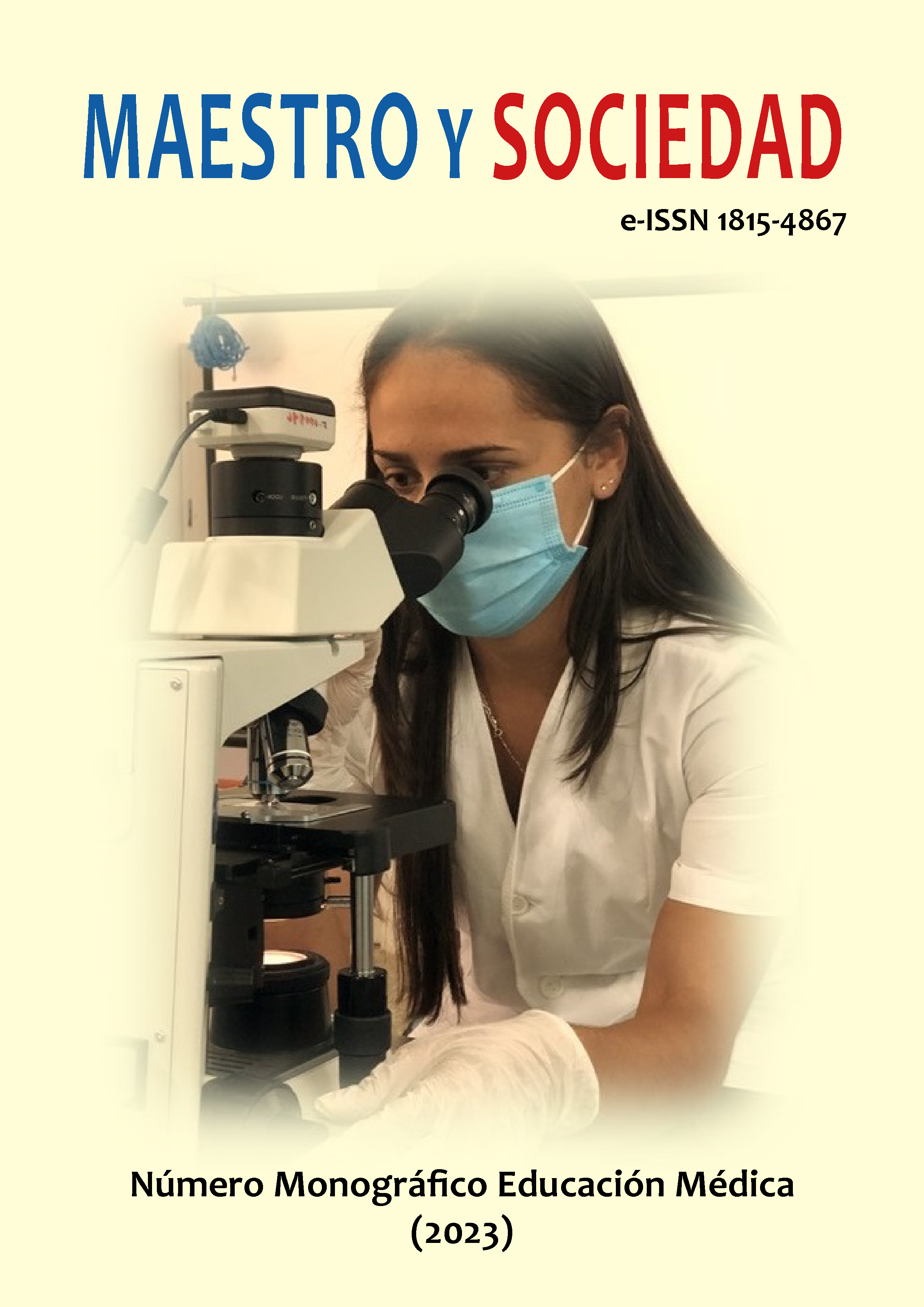Approach to the quality of life of the elderly in Ciudad Juárez from the testimonial narrative
Approach to the quality of life of the elderly in Ciudad Juárez from the testimonial narrative
Keywords:
older adults, culture, quality of life, narrativesAbstract
Introduction: This article was carried out by reviewing the testimonial narratives and focus groups prepared during the months of October and November 2020, whose objective was to understand the cultural perception of the quality of life of the elderly in Ciudad Juárez, Chihuahua. The introduction shows some reflections on the concept of culture and quality of life as a category that emerges from it. Materials and methods: It is based on a qualitative research with a testimonial narrative design with older adults, gerontologists, nursing home caregivers and direct relatives of older adults. Results: The results, the development and the discussions of these are tested in seven topics as subcategories of quality of life; family, physical and psychological health, sexuality, religion or spirituality, social and economic. Discussion: The economy is a very important factor that influences the quality of life of the elderly, since it intervenes in most of the other aspects mentioned above, however we must not ignore that what is investigated is the cultural perception of the quality of life, and this can be perceived as good or bad, although without influencing the entire economic aspect. Conclusions: The conclusions show that the perception of quality of life depends on the individual perception of older adults and the place and conditions that surround them.
References
Acosta, L. D. (2019). Factores asociados a la satisfacción vital en una muestra representativa de personas mayores de argentina. Hacia Promoc. Salud. 24(1), 56-69. https://doi.org/10.17151/hpsal.2019.24.1.6
Baldeón, P., Luna, C., Mendoza, S., y Correa, L. (2019). Depresión del adulto mayor peruano y variables sociodemograficas asociadas: analisis de endes 2017. Revista de la Facultad de Medicina Humana. 19(4), 47-52. https://doi.org/10.25176/RFMH.v19i4.2339
Bhabha, H, K, (2002). El lugar de la cultura (C. Aira, Trad.). Routledge; Manantial. (Original publicado en 1994).
Borges Machín, A. Y., & González Bravo, Y. L. (2022). Educación comunitaria para un envejecimiento activo: experiencia en construcción desde el autodesarrollo. Región Científica, 1(1), 202212. https://doi.org/10.58763/rc202213
Chávez, J. (2004). Actividade fí sica y el deporte en el adulto mayor: Bases fisioló gicas. Masson Doyma Mé xico.
Eagleton, T. (2001). La idea de cultura: una mirada politica sobre los conflictos culturales. Paidos.
Ferrater, M. (1975). Diccionario de filosofía. (5. ed.). Editotial Sudamericana.
Fisher, E., & Gonzalez, Y. S. (2020). Qualifications and Certificates v Practical Knowledge and Experience: Is There a Winner?. Business and Economic Research, 10(2), 1-21
Frost, E. C. (2014). Las categorías de la cultura mexicana. Ciudad de México: Fondo de Cultura Económica.
Gobierno de México. (2019). Salud mental en personas mayores. Instituto Nacional para el Adulto Mayor. https://www.gob.mx/inapam/articulos/salud-mental-en-personas-mayores?idiom=es
Llanes, C. (2013). La sexualidad en el adulto mayor. Revista Cubana De Enfermerí a, 29(3), 223-232. http://scielo.sld.cu/scielo.php?script=sci_arttext&pid=S0864-03192013000300008
Organización Mundial de la Salud. (2017). La salud mental y los adultos mayores. https://www.who.int/es/news-room/fact-sheets/detail/la-salud-mental-y-los-adultos-mayores
Organización Mundial de la Salud. (2015). Informe mundial sobre el envejecimiento y la salud (WHO/FWC/ALC/15.01). https://www.who.int/ageing/publications/world-report-2015/es/
Organización Mundial de la Salud. (2010). Dia internacional de las personas de edad 1º de octubre. https://www.who.int/features/qa/72/es/
Pelcastre, B. E., Treviño, S., González, T., y Márquez, M. (marzo de 2011). Apoyo social y condiciones de vida de adultos mayores que viven en pobreza urbana en México. Scielo, 27(3), 460-470. http://www.scielo.br/scielo.php?script=sci_arttext&pid=S0102-311X2011000300007
Ramos, F. (2001). Salud y calidad de vida en las personas mayores. Dialnet, 1(16), 83-104. https://dialnet.unirioja.es/servlet/articulo?codigo=743587
Rivera, A., y Montero, M. (2005). Espiritualidad y religiosidad en adultos mayores mexicanos. Salud Mental, 28(6), 51-58. http://www.scielo.org.mx/pdf/sm/v28n6/0185-3325-sm-28-06-51.pdf
Urzúa, M., y Navarrete, M. (2013). Calidad de vida en adultos mayores: aná lisis factoriales de las versiones abreviadas del WHOQoL-Old en població n chilena. Revista Mé dica De Chile, 141(1), 28-33. https://scielo.conicyt.cl/pdf/rmc/v141n1/art04.pdf
Valdez, M. G., y Álvarez, C. (2018). Calidad de vida y apoyo familiar en adultos mayores adscritos a una unidad de medicina familiar. Horizonte sanitario, 17(2), 113-121. http://www.scielo.org.mx/pdf/hs/v17n2/2007-7459-hs-17-02-00113.pdf
Downloads
Published
How to Cite
Issue
Section
License
Copyright (c) 2023 Omar Ponce Carbajal, Roberto Sánchez Benitez

This work is licensed under a Creative Commons Attribution-NonCommercial-NoDerivatives 4.0 International License.
This journal provides immediate open access to its content, based on the principle that offering the public free access to research helps a greater global exchange of knowledge. Each author is responsible for the content of each of their articles.



























 Universidad de Oriente
Universidad de Oriente 